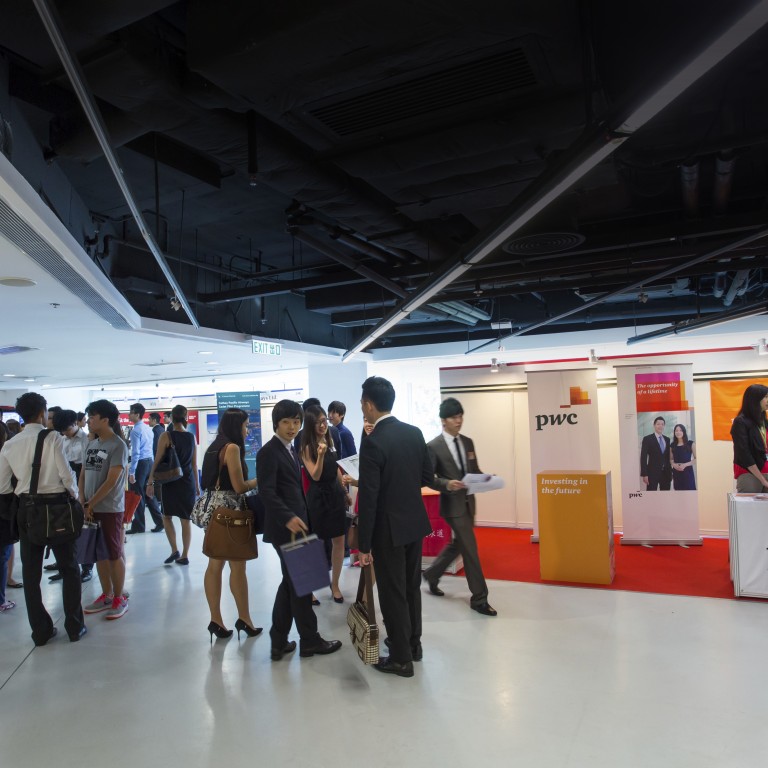
The allure of career exposure
Increasing career opportunities in Hong Kong are encouraging local students studying in Britain to return home when they graduate.
Increasing career opportunities in Hong Kong are encouraging local students studying in Britain to return home when they graduate.
Greater career exposure, access to the ever-growing China market, proximity to friends and family at home, and the ease of getting a job locally without having to apply for a work visa are encouraging more graduates to come back upon finishing their studies.
Justin Chan, founder and president of the UK Joint University Hong Kong Career Society, has responded to the trend by connecting graduates with potential employers.
The society launched in 2014 boasts more than 2,000 Hong Kong undergraduates and post-graduates from the top 15 universities in the UK, including the University of Oxford, the University of Cambridge, the London School of Economics and Political Science, and University College London. "There is more high-end exposure in Hong Kong as compared with in Europe for interns and trainees," says Chan, now in his third year of a degree in mathematics, operations, statistics and economics at the University of Warwick.
"For example, if you work for an investment bank in Hong Kong, you are very likely to get exposure across the whole Asia-Pacific region. Each of the regional deals is very different from the others because of the varied regulations and professional practices across these markets.
"It is very exciting for students to be able to have such a great variety of professional experience."
The society has attracted sponsorship from international companies such as Prudential, Pricewaterhouse Coopers and Standard Chartered Bank, as well as local companies including Hong Kong Electric and Cathay Pacific. It is also sponsored by trade organisations such as the Hong Kong General Chamber of Commerce and the London external trade office of the Hong Kong Trade Development Council.
"The companies I work with tell me that they are very eager to have access to various talent pools," Chan says. "Unlike the case of local graduates, there is no centralised platform for UK graduates from Hong Kong to connect with prospective employers back at home. I guess that is why so many companies have responded warmly to our initiative."
UK graduates are facing increased competition from local counterparts. Chan, who did his internship with an accounting firm in Hong Kong, said he found his local peers more sophisticated in terms of work-related social skills, from how to handle job interviews and meetings, to managing LinkedIn profiles.
"It is quite an eye-opener to me," Chan said. "The universities in Hong Kong have done so much to prepare their students for work, whereas the UK universities are more focused on academic training."
Ivan Au, an assurance partner at Pricewaterhouse Coopers, said it had always been the company's priority to ensure diversity in the team. The company is one of the very first corporate sponsors of the society.
"As a professional service provider, we provide value-added services to our clients by sharing insights that the client has never thought about before," Au says.
"In order to be able to do that, we need [talented people] with diverse exposure. Such diversity includes education, background, professional experience and nationality."
Au believes cultural awareness stands any job applicant in good stead. But contrary to popular thinking that international firms prefer candidates with overseas educational backgrounds, Au said that what really mattered was the aptitude of individual candidates.
"The ability to work in a team, to think outside the box, and to communicate well are the soft skills that our company goes after," Au says. "It is more about the individual than whether the candidate studied in Hong Kong or overseas."
"Top UK universities are highly regarded internationally and well-recognised in Hong Kong," says Jenny Leung, a manager with recruitment firm Morgan McKinley. "It is definitely a plus to have their names on your CV. However, when it comes to more senior hiring, it depends more on the skill sets and experience of that individual rather than his or her education."
Certain industries like investment banking, legal services and professional services may be more aggressive in on-campus recruitment at home and overseas. In which case the university made a difference, Leung added.
The cultural perception of local graduates being more conservative and less outspoken compared with their overseas counterparts was melting away too, Leung said, as local graduates became more and more sophisticated.
On the other hand, the UK remains one of the most popular postgraduate study destinations among students from Hong Kong and China.
According to a recent report on postgraduate mobility trends published by the British Council, the UK is predicted to remain the second most popular hosting country for international graduate students by 2024, after the US.
The US is expected to host 407,000 postgraduates from abroad by 2024, up from 253,000 in 2012, followed by the UK, which will host 241,000, Germany (113,000) and Australia (112,000).
The report, which covers 23 origin countries, also predicted that China would account for 44 per cent of growth in the total number of inbound postgraduates to the UK in the next decade. The growth rate of Chinese postgraduates studying in the UK is expected to outpace that in the US. Zainib Malik, research director at the British Council, said UK education remained a popular choice for students from Hong Kong and China for various reasons.
"Time-efficiency is a key factor. It only takes one year, instead of two, to complete a postgraduate degree in the UK. It is very attractive for career-minded students who have a clear idea where they want their career to go after graduation."
